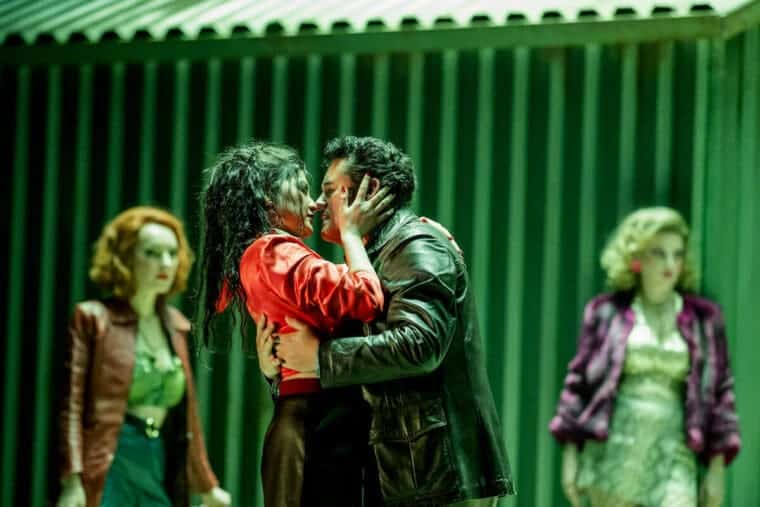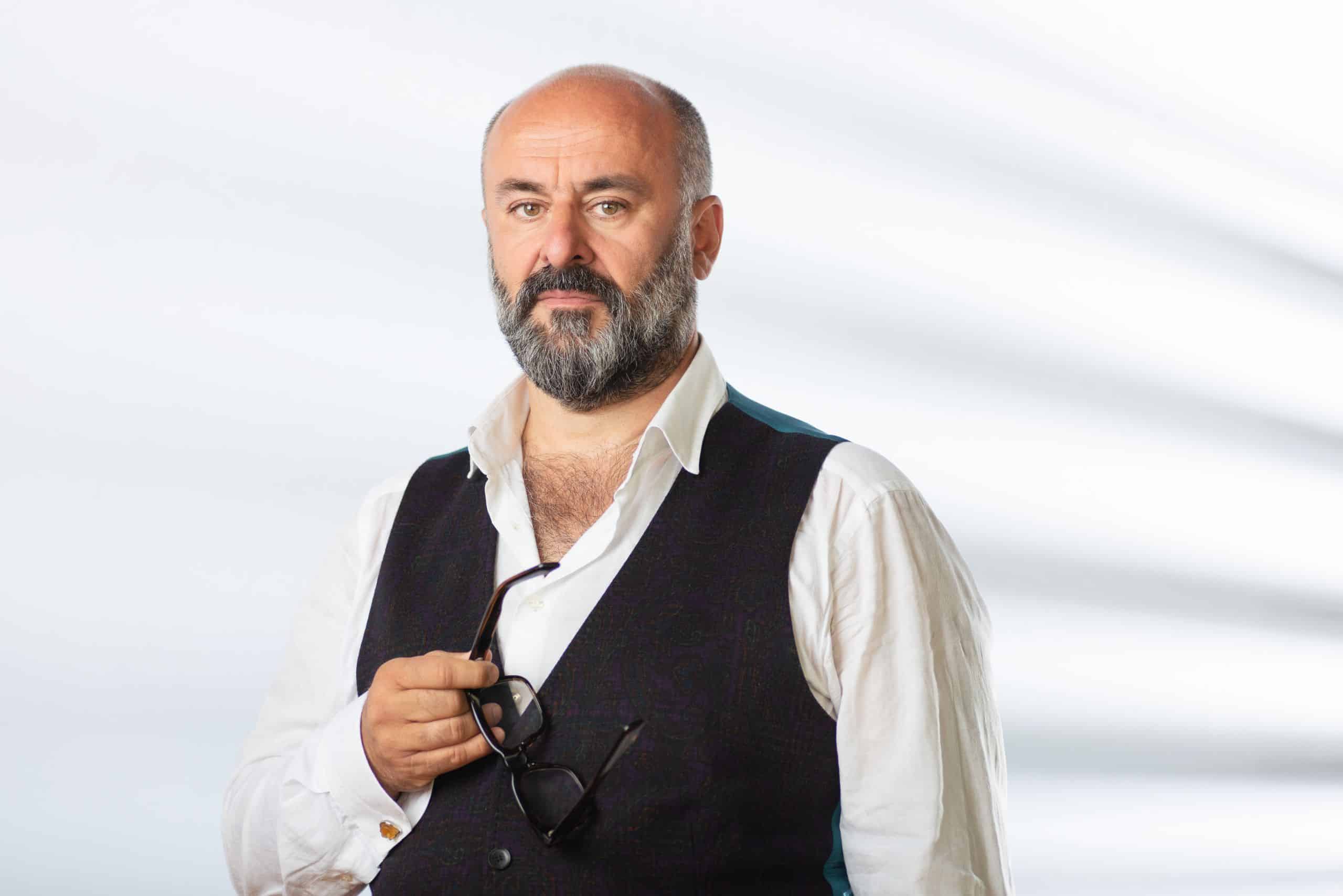First night: Covent Garden’s new Carmen is trivial and misogynist
OperaFirst-night review for Slippedisc by Alastair Macaulay
Carmen is – thrillingly and subversively – the freest woman in all opera; Don José – the role that the great bass Feodor Chaliapin said was the only part that made him want to be a tenor – is the borderline-psychopath lover who kills the woman he loves. And all this happens in Spain, with music by Bizet that has often seemed to recapture Spanishness even for the Spanish. How can you go wrong with such irresistible ingredients?
Alas, the list of answers to this question is all too long. Opera-goers in recent decades have seen Carmen in a gorilla suit, in a car dump, and in other peculiar versions.
Still, there were excellent reasons to look forward to the Royal Opera’s new production of “Carmen”, which had its premiere on Friday night. It had admirable and world-class interpreters of the leading three roles – the Russian mezzosoprano Aigul Akhmetshina (Carmen), the Polish tenor Piotr Beczala (José), the Ukrainian soprano Olga Kulchynska (Micaëla) – and a good conductor, Antonello Manacorda. Listening to music I have known well for over sixty years, I was amazed to find myself unable to keep still: its highlights become newly infectious with Manacorda.
And yet this “Carmen” is considerably more trivial than the sum of its parts – and considerably more misogynist. The director Damiano Michieletto, the set designer Paolo Fantin, the costume designer Carla Teti, and – above all – the lighting designer Alessandro Carletti have all conspired to take the importance out of “Carmen”.
The sets (vaguely banana-republic) seldom keep still. Restlessly, as if fidgeting, they revolve to and fro, clockwise and anticlockwise, never to good effect. It might be refreshing to have Carmen and the other female cigarette workers appear in dungarees and jeans – modern working girls – but it’s disappointing to find Carmen and her girlfriends later appearing in more clichéd outfits, including hot pants. The bullfighter Escamillo wears a lemon-and-lime suit. Micaëla – a gross caricature of the usual simple country girl – is pointedly dowdy, not only wearing thick glasses (“Men seldom make passes at girls who wear glasses”) but busily readjusting both them and her rosary. The star characters often sing with their faces in shadow. The lighting rig competes with the various characters for attention until finally it upstages José’s murder of Carmen by aiming its full glare at the audience.
The only characters whom Michieletto makes appealing are a group of children. True, he makes them unimportant during their big Act One number (when they should be enchanting street urchins). But he brings them back for the entr’actes, when they hold up cardboard letters that spell out such stage directions as “Un mois plus tard.” This is adorable (though Michieletto eventually overplays its adorability). So why can’t Michieletto make any of the central characters likeable this way?
He also deploys a recurrent fate device that is both clunky and nasty. An old lady, in traditional black Spanish attire (mantilla and all), ponderously haunts the production as its Fate figure, melodramatically shuffling the cards throughout the overture’s fate theme until, centre-stage, she flourishes the Death card at us. During her several return visits, it emerges she is José’s neglected mother. And she – while bitterly opposed to the sexy Carmen – is very keen on the dowdy Micaëla. Poor José, you see, becomes a victim of three tiresome women: he has the passive-aggressive mother from hell, the pushy and unattractive wannabe-girlfriend Micaëla, and the obvious, sexy, if tiresomely lightweight Carmen. The misogyny of Michieletto’s approach isn’t obvious at first, but builds incrementally. Still, I couldn’t help wishing he made José stab his wretched mother rather than his poor silly Carmen.
Beczala’s José and Kulchynska’s Micaëla, both singing marvellously, almost transcend this dreary ghastliness. Beczala’s voice has grown in size and power with no loss of line; his singing is now strongly reminiscent of Nicolai Gedda’s in timbre and verbal eloquence. Kulchynska, though the production makes her over-act badly, sings with ever-growing purity, strength, and touching expressiveness, a fascinating amalgam of vulnerability and purposefulness.
Akhmetshina burst into fame as Carmen before the pandemic: in summer 2019, she transcended the gorilla suit of Covent Garden’s last production. Now all of twenty-seven, she is the globally in-demand Carmen of the moment. She has personal and vocal glamour, a dark-bright-vibrant voice of astounding presence and allure with no apparent weakness, a handsome physique, and easy stage physicality.
Yet by now she should be making far more verbal point of such lines as “Je ne pars pas” and “Je suis amoureuse.” Instead she relies on delivering the French language in excessively covered Eastern European vowels with little bite to her consonants. And though Michieletto is the main reason why this Carmen becomes a largely superficial character, one must blame Akhmetshina for not proclaiming such words as “la liberté” as if Carmen knew their deep significance. This is a Carmen who scarcely seems to know her own mind.
I get lost in the number of different editions of “Carmen” that have been heard in the last sixty years. This one is among the least interesting, with acres of orchestral preamble to some big numbers that top them of surprise. “Carmen,” one of the miraculous masterworks of music theatre, seems more repetitious and less suspenseful than ever before.
Kostas Smoriginas’s Escamillo is a charmless bore. The cast is littered with past and present members of the Royal Opera House’s Jette Parker Young Artists Scheme from Armenia,. Canada, the Congo, and Lithuania. When you compare their singing to that of British singers on a live Covent Garden performance from 1973, you find the French utterance of 2024 is less distinct and the vocalism less impressive. Abandon hope of singing in the foremost opera houses of your native land, talented British singers of today!







Bravo!
I miss the vibrancy of Baltsa, Carreras, McLaughlin and Summers, led by the glorious Colin Davis …
I’ve always been tickled by the bit where Don José, accosted by the luckless Michaela, positively seething with love, starts off with “Tell me about my mother”…just the words any girl longs to hear… 🙂
When you compare their singing to that of British singers on a live Covent Garden performance from 1973, you find the French utterance of 2024 is less distinct and the vocalism less impressive. Abandon hope of singing in the foremost opera houses of your native land, talented British singers of today!,
Couldn’t agree more and cut out the audience staring at imperfect surtirles instead of the stage, but then likely to be accused of racism today!
If more recent French films and television series are any indication, even French actors can’t, or won’t, speak distinctly now.
That may be true about French actors. But if you listen to the French mezzo, Virginie Verrez, sing in Roméo et Juliette or in Carmen her diction is superb.
Agree re jeans and hot pants when “music… that often seems to recapture Spanishness even for the Spanish” demands simple fringed shawls. What is the matter with these directors? Carmen, Rigoletto, Tosca, Traviata, must every popular opera be brought up-to-date by dropping the magical historical context? Laughed a lot reading this incisive review. Loved the line about killing the Mother instead.
I have no intention of seeing this production however that does not mean I will refrain from commenting and sharing my memories of he glory that was the production stirringly and vibrantly conducted by the great Carlos Kleiber in Munich.
Luckily Kleiber’s Carmen in Vienna, with Domingo, Obraztsova and the wonderful Isobel Buchanan as Michaëla, has been preserved on video.
Not only that but it was a late insertion into the BBC schedules as a live TV relay in the days when the BBC still cared about culture.
I think the last time they did anything so ‘radical’ was with Angela Gheorghiu’s Traviata conducted by Solti in 1994 yes, that’s 30 years ago!
THE Carmen with Carlos Kleiber / Zeffirelli was in Vienna, 1978, I was at the Premiere – unforgettable!-
Yes, he is right in just about all his comments.
The dress rehearsal audience was underwhelmed by the production, but gave the singers credit for their toiling in a barren vineyard.
What did the ROH expect from a director who gave us a Blut und Boden Tell and suburban Cav and Pag?
I’ll bet that Glyndebourne do it better in a month or two, and use the glorious Aigul A to full effect
Would somebody please add the names of an all British 2024 Carmen cast for the ROH?
Christine Rice is a terrific Carmen. She sang it here in Singapore not too long ago. Add in Freddie di Tommasso, Sophie Bevan and William Thomas and voila!
Some good suggestions here. William Thomas is a great arrival on the scene with terrific potential but, like so many others is not an Escamillo because of the range required; Bryn T recognised the difficulty of this role. My choice would be the severely underused, in this country but not in Europe, Leigh Melrose.
As others have mentioned past productions, the Edinburgh Festival’s Carmen in 1977 has been rightly praised to the rafters ever since. With Claudio Abbado leading the LSO in the pit, Teresa Berganza making her debut in the role, Mirella Freni, Placido Domingo and Tom Krause leading the cast performing on one gloriously simple set by Ezio Frigerio, Piero Faggioni’s production oozed Spain and let Berganza perform with her own views on Carmen as a spirited independent woman rather than the caricature we so often witness. As Karajan said of Berganza, she was “the Carmen of the century.” That the Edinburgh recording – made immediately after the performances but with some cast changes – remains in the catalogue is testament to its magic.
Well, I loved it ♀️agree about the lack of clear French diction, but otherwise thought this was a brilliant take on a classic. I was riveted.
The entire performance was far too dark. Couldn’t see a thing. Terrible waste of money. Tickets were £250. This isn’t the first time the ROH has disappointed.